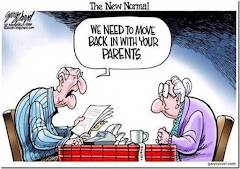Last week I presented a blog which provided one man's opinion of what we lost when we lost hymns. This week I want to share the other side, by the same blogger, what we've gained when we lost our hymns. This was written by Tim Challies on April 18, 2017.
A few weeks ago I wrote an article titled What We Lost When We Lost Our Hymnals and was rather surprised to see 300,000 people stop by to read it! I meant to point out that there are consequences in shifting from one medium to another - in this case, shifting from hymnals to PowerPoint projection. (I use "PowerPoint" to stand in for all forms of projection.) It is true of every new technology that it brings benefits and drawbacks. Neither hymnals nor PowerPoint are exempt from the rule.
Where that article focused on what we lost when we shifted from hymnals to projection, today I want to focus on what we gained. When our churches turned away from hymnals to instead sing lyrics projected on a screen, here is some of what we gained.
We gained immediacy. Not all of the good songs are old songs. In fact, today we are seeing a great resurgence in hymnody that has generated many wonderful new songs. There are some that are almost too good not to sing. Yet hymnals made us wait years or even decades before we could add them to our services. "In Christ Alone" became a modern day staple in part because PowerPoint made it so easy to add it to our services. Other songs like "He Will Hold Me Fast" or "Before the Throne of God Above" are worthy of singing and of standing the test of time, but can only easily be sung by churches that are not reliant on hymnals. PowerPoint projection reduces the lag between great new songs and updated hymnals.
We gained posture. Hymnals forced us into a particular physical posture. We had to hold the hymnal in one hand (or even in both hands) and look down at the words. Thus hymnal posture was stiff and fixed. PowerPoint projects words onto an elevated screen and asks us to hold nothing in our hands. Thus PowerPoint posture is open and free which may be a superior posture for worship, and especially for worship that is physically expressively - something the Bible seems to allow or even advocate. It is difficult to raise your hands in worship while clutching a three-pound, five-hundred-page hymnal. It is even more difficult to clap your hands.
We gained variety. There is undoubtedly a hazy line between a hymn and a chorus. "The Gospel Song" is probably not the kind of song that would make it into many hymnals, yet it has sound lyrics and can be a sweet addition to worship. There are many other choruses that do not fit the "hymnal mold" even though they are biblical, purposeful, and singable. To a significant degree, hymnals promoted certain kinds of songs while holding off others. Yet the Bible gives us freedom to worship in "songs, hymns, and spiritual songs", to praise God in every variety of song. PowerPoint helps us do this.
We gained portability. In many places in the world church buildings are forbidden, rare, or unreasonably expensive. That is exactly the case here in Toronto where most new congregations have to rent space in schools, libraries, or community centers. Transporting several hundred hymnals to a building is difficult when compared to simply transporting a laptop and projector. There is a convenience and portability to PowerPoint that is missing in hymnals. Not only that, but the cost is lower. Two hundred and fifty hymnals will cost around $6,000; a laptop and projector can be had for a fraction of that.
We gained spontaneity. PowerPoint allows a kind of spontaneity that may not be present when relying on hymnals. At a recent engagement I quoted a song's lyrics in my sermon, and with a click or two, the worship leader was able to immediately add it as the song of response. This would not have been possible if that church had used hymnals (unless, of course, that song had been in the hymnal).
We gained service. Our hymnals reflect a vetting process where hundreds of thousands of hymns were whittled down to just a few hundred. This happened by generations of Christians fumbling their way through awful hymns so they could, over time, settle on the few excellent ones. Remember, we honor Charles Wesley for the ten or twenty of his hymns we continue to sing today, and gladly forget the other 5,980. We have the opportunity to serve future generations by singing a variety of today's songs and, as we do so, filtering the good from the bad and the best from the rest.
The reality is that neither hymnals nor PowerPoint are entirely good or entirely bad. Both have benefits and both have drawbacks (which is what we should expect for any technology or innovation that exists in a sinful world). What is important is that we properly weigh and assess both in the light of our context and decide which will best serve our local church.












